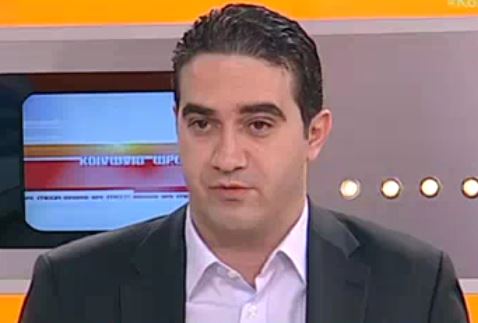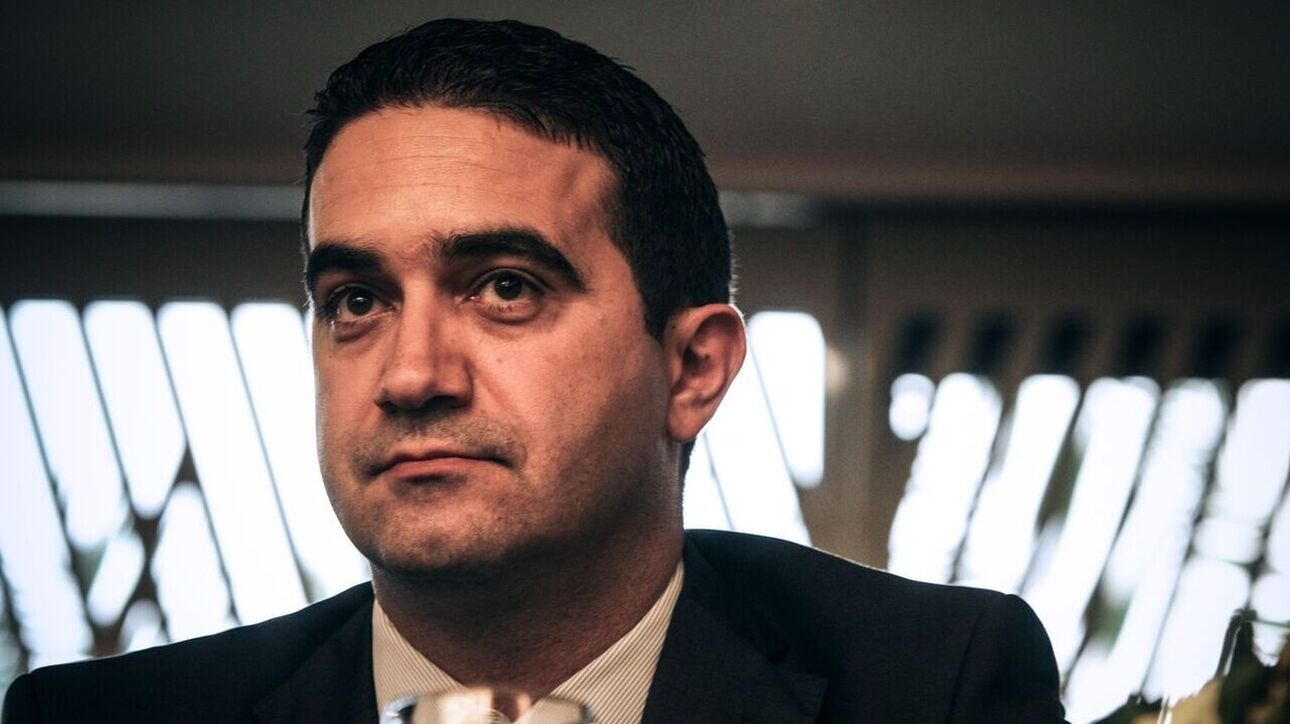Το ζήτημα της εξαγωγής οπλικών συστημάτων από τη Γερμανία προς την Τουρκία θέτει ο βουλευτής…

Παρέμβαση στη Σύσκεψη των Προέδρων Επιτροπών ‘Αμυνας των χωρών της Ε.Ε για τις αμυντικές δαπάνες
Το διάστημα 3 ως 5 Ιουλίου 2011 διεξήχθη στη Βαρσοβία Συνάντηση Προέδρων Επιτροπών Άμυνας των κοινοβουλίων των κρατών μελών της Ε.Ε., στο πλαίσιο δραστηριοτήτων της Πολωνικής Προεδρίας. Οι θεματικές ενότητες της συνάντησης αφορούσαν στις προκλήσεις της ΚΕΠΑΑ, στη δράση της ΕΥΕΔ, στις σχέσεις ΝΑΤΟ – E.E. και τις σχέσεις Ε.Ε. – Ρωσίας. Από ελληνικής πλευράς συμμετείχε ο Βουλευτής και Γραμματέας της Διαρκούς Επιτροπής Άμυνας και Εξωτερικών Υποθέσεων κ. Μιχάλης Κατρίνης.
Κατόπιν των εναρκτήριων ομιλιών του Προέδρου του Πολωνικού Κοινοβουλίου κ. Grzegorz Schetyna και του Προέδρου της Πολωνικής Δημοκρατίας κ. Bronislaw Komorowski, ακολούθησε η ομιλία του Υπουργού Εθνικής Άμυνας της Πολωνίας κ. Bogdan Klich.
Ακολούθησε η ομιλία του κ. Maciej Popowski, βοηθού Γ.Γ. της Υπηρεσίας Εξωτερικής Δράσης και κατά τη δεύτερη ενότητα μίλησαν από πλευράς πολωνικής προεδρίας η Αντιπρόεδρος της Κοινοβουλευτικής Διάσκεψης του ΝΑΤΟ κα Jadwiga Zakrezewska, και ο καθηγητής και σύμβουλος τoυ Προέδρου της Πολωνίας κ. Roman Kuzniar.
Ο κ. Κατρίνης στην τοποθέτησή του αναφέρθηκε στην αδυναμία της Ε.Ε. να αναδείξει τις πολιτικές της δυνατότητες και στην ιστορική κυριαρχία του ΝΑΤΟ, το οποίο αποτελεί άλλωστε το βασικό πυλώνα της πολιτικής ασφάλειας και άμυνας στη Δύση εδώ και 60 χρόνια, επί της Ε.Ε. ως στρατιωτική οντότητα. Επεσήμανε την ανάγκη προσαρμογής των αμυντικών δαπανών στην παρούσα οικονομική κατάσταση, λαμβάνοντας υπόψη τις δυνατότητες που παρέχει η πρωτοβουλία κοινών δεξαμενών αμυντικών μέσων, η στενή συνεργασία στο επίπεδο της παραγωγής οπλικών συστημάτων, αποφεύγοντας οικονομικούς εθνικισμούς και προσανατολιζόμενοι σε διεθνώς ανταγωνιστικά προϊόντα και η προώθηση κοινών προγραμμάτων διττής χρήσης – στρατιωτικής και πολιτικής. Επιπλέον, αναφέρθηκε στο αυξημένο, λόγω της κρίσης στον αραβικό κόσμο, πρόβλημα της μετανάστευσης και στην ανάγκη φύλαξης των εξωτερικών συνόρων της Ε.Ε..
Κατά την επίσκεψη στη Βαρσοβία πραγματοποιήθηκε συνάντηση εργασίας του κ.Κατρίνη με τον έλληνα πρέσβη στη Βαρσοβία κ. Κοπτσίδη, όπου συζητήθηκε μεταξύ άλλων το αυξημένο ενδιαφέρον των Πολωνών για την Ελλάδα και το ενδεχόμενο δημιουργίας γραφείου τουρισμού με σκοπό την περαιτέρω προώθηση του τουρισμού.
Το πλήρες κείμενο της ομιλίας του κ. Κατρίνη έχει ως εξής :
Dear Colleagues,
first of all allow me to congratulate the Polish presidency for this very interesting and well organized conference.
Recent developments in North Africa and the middle East, developments concerning the internal political status of the countries in the region, brought right in the doorstep of the EU and even closer to the southern wing of NATO, a crisis with special characteristics. The two organizations are called to manage this crisis, implementing new doctrines in the political and operational management and using at the same time the historical experience acquired in the yugoslav, afgan and iraqi crisis. Everyone’s expectation was to respond this time in a wiser and more prudent way. Unfortunately, the result was not the expected one.
Of course we need to accept the fact that the EU has not yet proved its political capabilities, meaning that as a political entity it is significantly confined compared to it’s economical magnitude. And of course as a military entity the EU exists under the historical dominance of NATO which is the main security and defense pillar in the region for over 60 years. And maybe taking all these into consideration, we should once again go back to the question what are really the military capabilities of the E.U. and how can they be combined with the new NATO doctrine and its new structure?
We have always been a strong supporter of the development of a Common Foreign and Security Policy for the EU, including the formulation of a common European Defence. Greece’s contribution to the development of European military and civilian crisis management capabilities, with the recent example of the evacuation missions in Northern Africa, is substantial. We support important political initiatives undertaken in this line of thought. However, when we are talking about political initiatives we should also consider the cost, especially in this period of fierce economical crisis. We should all consider adjusting our military budgets on a national as well as on an EU level. Euopean defense strategy should be planned according to European defense needs, protection of European borders and the development of regional and international threats, to be more precise : promote pooling and sharing initiative and use common defense pools in European missions as well as in the protection of external borders, achieve close cooperation in the field of defense systems production – not nationally oriented – acquire internationally competitive products and promote common programs for the production of equipment with double use, both military as well as civil.
Mr Chairman, Dear Colleagues, I also wish to underline an important aspect of the recent crisis, also mentioned by Prof Kuzniar: that of the subsequent migration flows towards the EU. Greece, being at the external borders of the EU and in immediate geographic proximity to this area, will be directly and seriously affected along with the other southern member states. Given the fact that the problem is not just a Mediterranean one, but a European concern, we should be preemptive before the situation escalates further. Dear colleagues allow me to stress that this is a European issue and should be dealt as such. Cooperation and solidarity amongst EU partners is necessary and expected.



